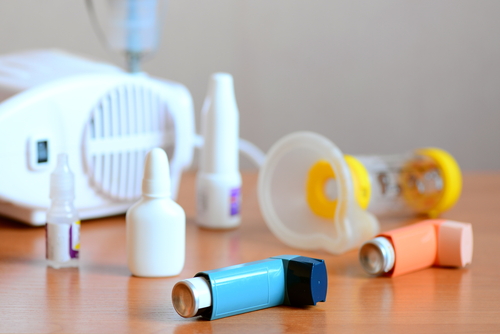Synairgen’s Antiviral Therapy SNG001 Proven Safe for COPD Patients in Phase 2 Trial
Written by |

Preliminary results from a Phase 2 trial show that Synairgen’s investigative therapy SNG001 is well-tolerated by patients with chronic obstructive pulmonary disease (COPD).
The ongoing two-part Phase 2 trial, called SG015 (2017-003679-75), is evaluating the safety and effectiveness of SNG001 to prevent acute worsening of COPD symptoms triggered by the common cold virus or flu infection. The trial is ongoing at several sites in the U.K.
The first part of the study includes dosing 10 adult patients with confirmed COPD and no evidence of viral infection. Eight of these patients inhaled SNG001 directly into the lungs, and two patients received a placebo.
In this part, the researchers are evaluating the ability of SNG001 to boost pulmonary antiviral defense mechanisms in the absence of infection.
Analysis of the safety data collected from the first 10 dosed patients by the Drug Safety Monitoring Committee confirmed the treatment is safe and well-tolerated. Based on these findings, the committee approved the trial’s continuation to the second part.
Scheduled to cover the 2018/2019 winter cold virus season, the second part of the SG015 trial is planned to measure the effects of the inhaled drug in 80 patients with COPD who have a cold or flu infection, which is a major trigger of COPD exacerbations.
Participants will be randomized to receive either inhaled SNG001 or a placebo. Their lung functions will be evaluated, as well as blood and sputum analysis for determining biomarkers of immune response and viral load.
“COPD is a very severe disease and it is reassuring to establish that SNG001 is well tolerated in these patients,” Richard Marsden, CEO of Synairgen, said in a press release. “We look forward to seeing the biomarker analysis, which is due in the near term to see whether SNG001 has switched on the antiviral defense mechanisms.”
SNG001 is an inhaled formulation of interferon beta (IFN-beta), which is one of the body’s natural defenses against viral infections.
Synairgen researchers have shown in preclinical studies that SNG001 can protect the lung cells of COPD patients when infected with viruses that cause exacerbations.
The drug candidate can promote natural antiviral defense mechanisms that prevent the occurrence of COPD exacerbations.
Data from two Phase 2 trials (NCT01126177 and NCT02491684) in patients with asthma demonstrated that SNG001 can promote beneficial antiviral responses in the lungs, with significant changes in several biomarkers. The treatment was shown to improve the patient’s lung function and, in more difficult-to-treat patients, it provided better asthma control during cold infections.
In general, changes in biomarkers were associated with clinical benefits in people with asthma, Marsden said.
“Therefore, if we see similar biomarker changes in [the SG015] study, it will greatly increase our confidence in the potential of SNG001 in COPD, where colds and flu can cause more severe symptoms than in asthma,” he added.




